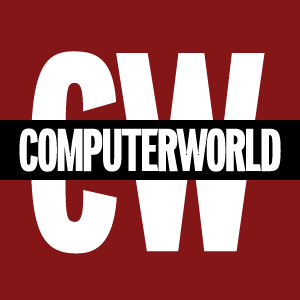Winston Churchill once quipped, “Never let a good crisis go to waste.” Tech companies have taken that advice to heart with COVID-inspired products addressing everything from contact tracing to virtual video backgrounds. Last week, I looked at new technologies that promise to change the way that we meet. This week, I will look at products that address other aspects of post-pandemic life.
Better spaces
Upflex had been renting on-demand workspaces primarily to small businesses and startups for two years when COVID hit. “We quickly realized work was about to change forever, and flex work was about to go mainstream,” said CEO Christophe Garnier.
The result was Unify, an enterprise-oriented centralized booking platform that lets large companies tap into Upflex’s network of offices and conference rooms to book space for their remote employees. “Whether it’s enabling teams to find meeting rooms on-demand, facilitating a client meeting during a business trip, or getting a solo contributor out of the house and into a collaborative workspace, our new mission is to be flex work’s biggest ally,” Garnier said.
JLL Technologies, a high-tech real estate management firm for businesses, has busied itself during office closures preparing for transformed workplaces. Last year, it introduced a mobile app that lets office workers make desk and meeting room reservations, perform health screens, generate entry passes, capture broadcast notifications, and even find safe places for lunch.
Its Vergesense subsidiary produces software analytics that can be used to manage agile seating arrangements, create desk-sharing scenarios, and build flexible office plans. Another new tool offers employees well-being resources through a digital portal and marketplace, including the ability to procure home office furniture. And Healthy Return helps employers create a back-to-work program that incorporates best practices and safety and cleanliness.
Safer places
Let’s Talk Interactive, which makes an assortment of digital tools to support telemedicine, recently introduced LTI Tempscreen, a standalone check-in system for health screening and identity verification. The touchscreen kiosk verifies patients’ identities, takes their temperature, and conducts a symptom screening survey in a process that is fully compliant with healthcare regulations. It even prints wristbands and visitor badges.
“With the effects of COVID, access management is needed more now than ever,” said CEO Art Cooksey. “All products we develop in the future will be about allowing providers to connect with patients safely.”
The Rensair air purifier has been in Scandinavian hospitals for decades, but during COVID, its manufacturer entered the U.S. and expanded into all types of work and learning spaces. Its portable and affordable air purifier combines a high-power ultraviolet light within the cylindric high-quality HEPA13 filter. The light constantly cleans the filter for safety and low maintenance. Rensair says its technology destroys more than 99.97% of airborne viruses, including the coronavirus. It can even clean up to 20,000 cubic feet per hour. Newsweek named it one of the best infection prevention products of 2021.
Special cases
MetaGeek has had a nice business for 15 years helping people troubleshoot their home Wi-Fi networks. With those networks suddenly becoming a lifeline for millions of former office workers, founder Ryan Woodings sensed an opportunity. Network troubleshooting tools for enterprises were all aimed at corporate campuses, not employee homes. Signifi Business, which was introduced in July, lets IT organizations remotely diagnose home Wi-Fi network problems from afar.
Users install a lightweight desktop client that periodically scans their network, diagnoses issues, and suggests step-by-step fixes for them to try. At the same time, it sends network data to an administrative dashboard at their employer. For IT organizations, “front-line remote troubleshooting is done for you, and you only have to get involved when there are escalations,” Woodings said. That’s one less headache for homebound technophobes.
Happy faces
Finally, the timing of COVID was both a blessing and a curse for Perks, a startup that was launched in January 2020 with the modest goal of creating a “culture and support platform for the future of work.” The economic crash couldn’t have come at a worse time for a startup, but the company’s distinctive model is tailor-made for atomized workforces.
Perks assesses the cultural health of the company through surveys and interviews and then constructs a digital platform that integrates with a customer’s digital workflows to measure and reward employee productivity while reinforcing teamwork and positivity.
“Think of Google campus and how they’ve tied their company to a certain employee experience,” said Dom Pantelides, co-founder and CEO. “We’ve taken that idea and digitized and democratized it.”
Perks helps customer companies set measurable employee satisfaction and engagement goals and creates training and teambuilding programs to reach them. The core of the platform is a marketplace of goods and services that employees can purchase with points they earn for hitting goals set by their employer. There are hundreds of healthy, good-for-you products in categories such as food, fitness, learning, and family.
“Micro-incentives give people motivation on a day-to-day basis, and being able to do this in a distributed work environment is unique to us,” Pantelides said.
Next read this:
Copyright © 2021 IDG Communications, Inc.

